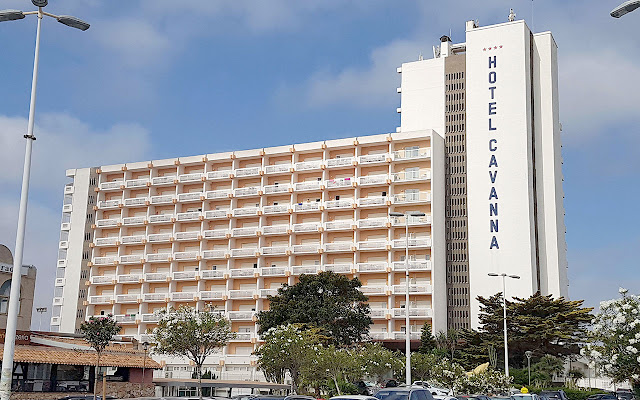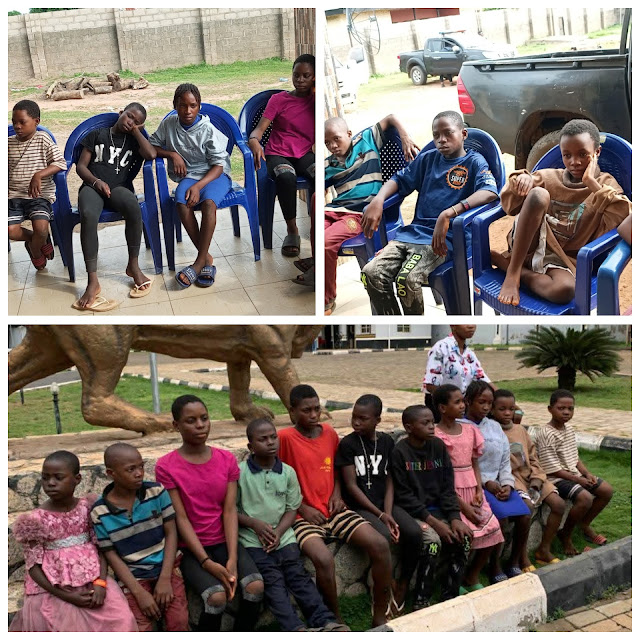In a shocking health scare that has disrupted the summer holiday season, more than 100 tourists, including a 15-month-old baby and seven children, have fallen ill with suspected salmonella poisoning at the four-star Izan Cavanna Hotel in La Manga, Spain. The outbreak, which struck during one of the busiest periods for tourism in the region, has led to at least 20 hospitalizations, with two patients—a baby and a child—still receiving treatment at Santa Lucía Hospital in Cartagena as of August 25, 2025. The severity of the situation prompted the establishment of a field hospital at the seafront hotel, where guests were treated for symptoms including nausea, vomiting, diarrhea, and fever. As ambulances lined up outside the hotel and guests were seen on hydration drips in corridors, frustration has mounted over the hotel’s slow response and lack of communication. This article delves into the details of the outbreak, the experiences of affected guests, the response from hotel management and health authorities, and the broader implications for tourism and public health in Spain.
The Outbreak: A Health Crisis Unfolds
The Izan Cavanna Hotel, a popular four-star resort located on the scenic La Manga strip in Murcia, Spain, became the epicenter of a public health crisis during the peak of the summer holiday season in August 2025. La Manga, known for its picturesque beaches and vibrant tourism industry, attracts thousands of visitors from across Europe, particularly families and couples seeking sun-soaked getaways. However, the idyllic setting was marred when more than 100 guests, including vulnerable groups such as children, a 15-month-old baby, and pregnant women, began exhibiting symptoms of food poisoning.
The outbreak was first reported on Saturday, August 23, 2025, when guests started experiencing severe symptoms, including nausea, vomiting, diarrhea, and fever—classic signs of salmonella infection. Initial tests conducted by health authorities pointed to salmonella as the likely culprit, though investigations are ongoing to confirm the exact source. The severity of the outbreak overwhelmed the hotel’s facilities, leading to the establishment of a field hospital on-site to provide immediate medical care. Ambulances were dispatched to the hotel, with some guests receiving treatment in their rooms via hydration drips, while others were placed on stretchers in hotel corridors, creating scenes described by witnesses as chaotic and distressing.
At least 20 guests were hospitalized, with the majority being assessed and discharged from Santa Lucía Hospital in Cartagena. However, two patients—a 15-month-old baby and a child—remain under medical care, highlighting the particular risk to young children. Salmonella infections, caused by bacteria typically transmitted through contaminated food or water, can be especially dangerous for vulnerable groups, including infants, the elderly, and pregnant women. Symptoms typically appear within six hours to six days of exposure and can last up to a week, with severe cases requiring hospitalization due to dehydration or systemic infection.
Guest Experiences: Frustration and Fear
The outbreak has left guests at the Izan Cavanna Hotel reeling, with many expressing outrage over the hotel’s handling of the situation. Frustrated holidaymakers have accused management of failing to act swiftly or provide adequate information, exacerbating the distress caused by the health scare. One British tourist, whose pregnant wife was among those hospitalized, shared a harrowing account of his experience. “I am still staying in room 826, and yesterday more than 40 people were affected by food poisoning from a spoiled product at the buffet,” he told local media. “My wife is eight months pregnant and has been admitted to the hospital. I spoke with the hotel at 9am to inform them of the seriousness of the situation … and now it is 2:20pm and I still haven’t received a call from anyone at the hotel.”
The lack of communication from hotel management has been a recurring theme in guest complaints. Several families reported cutting short their holidays and lodging formal complaints with the hotel and local authorities. New arrivals on Sunday, August 24, were particularly dismayed to learn that they were not informed about the outbreak upon checking in. Some were even served lunch at the hotel’s buffet before it was shut down for cleaning and disinfection, raising concerns about the risk of further infections. “We arrived on Sunday and had no idea anything was wrong until we saw ambulances outside,” one guest said. “They served us food from the same buffet that made people sick. It’s unacceptable.”
Guests also criticized the overall standards of the hotel, which they felt fell short of its four-star rating. The food, in particular, came under scrutiny, with descriptions ranging from “sincerely bland” to “horror-movie like.” One guest recounted being served “defrosted hake and fries floating in water,” while another described the dining experience as “utterly disappointing for a hotel of this supposed caliber.” Beyond the food, the hotel’s facilities were described as outdated, with one guest noting that the rooms felt like “a time machine straight to the 1970s, but not in a charming retro way.” These criticisms, combined with the health scare, have tarnished the reputation of the Izan Cavanna Hotel, which had previously been a popular choice for tourists in La Manga.
A particularly distressing account came from a Spanish woman identified only as Susan, whose 15-year-old daughter was among those affected. Susan claimed that her daughter was discharged from Santa Lucía Hospital prematurely, despite still suffering from fever and dehydration. “The hospital discharged my 15-year-old daughter when she was still unwell,” Susan said. “We found her alone in the car park, weak and dizzy. She’s worse than she was before.” This incident raised concerns about the capacity of local healthcare facilities to handle the influx of patients and the adequacy of post-treatment care for those affected by the outbreak.
The Suspected Source and Official Response
While the exact source of the salmonella outbreak remains under investigation, some guests believe that a fish dish or spinach-filled pasta served at the hotel’s buffet may be responsible. Salmonella is commonly associated with undercooked or improperly stored poultry, eggs, dairy, or produce, but it can also contaminate other foods, including fish and vegetables, if hygiene standards are not maintained. The hotel’s kitchen was temporarily closed for cleaning and disinfection on August 23, 2025, as health authorities began their investigation. Samples from the buffet are being tested to identify the contaminated item, and inspectors are examining the hotel’s food handling and storage practices.
The closure of the kitchen is a standard precaution in foodborne illness outbreaks, aimed at preventing further infections while the source is identified. However, the lack of a public statement from the hotel has fueled criticism. As of August 25, 2025, the Izan Cavanna Hotel had not issued an official response on its website or social media accounts, leaving guests and the public to rely on media reports and health authority updates. This silence has been perceived as a failure to take responsibility, further eroding trust among holidaymakers.
Local health authorities in Murcia have taken a proactive approach, coordinating with the hotel and the hospital to manage the outbreak. The establishment of a field hospital at the hotel was a critical step in providing immediate care to affected guests, many of whom were too ill to travel to Cartagena. The regional government has also launched an investigation to determine whether the outbreak resulted from negligence or systemic issues in the hotel’s operations. “We are working closely with the hotel and health services to ensure the safety of all guests,” a spokesperson for the Murcia health department said. “Our priority is to identify the source of the outbreak and prevent further cases.”
Salmonella: A Public Health Concern
Salmonella is a group of bacteria that causes foodborne illness, with symptoms including diarrhea, abdominal cramps, fever, and nausea. Infections typically occur through the consumption of contaminated food or water, with improper food handling, inadequate cooking, or poor storage practices being common causes. According to the World Health Organization (WHO), salmonella is one of the leading causes of foodborne illness worldwide, affecting millions of people annually. While most cases resolve without treatment within a week, severe infections can lead to complications, particularly in vulnerable groups such as children, the elderly, pregnant women, and those with weakened immune systems.
In the case of the Izan Cavanna outbreak, the hospitalization of a 15-month-old baby and a child underscores the risks to young children, who are more susceptible to dehydration and systemic infection. Pregnant women, like the British tourist’s wife, face additional risks, as salmonella can cause complications such as premature labor or harm to the fetus. The elderly, another vulnerable group, are also at higher risk of severe illness, though no elderly patients were reported among the hospitalized in this outbreak.
Preventing salmonella outbreaks requires strict adherence to food safety standards, including proper refrigeration, thorough cooking, and regular sanitation of kitchen surfaces and equipment. Hotels and restaurants, particularly those serving large buffets, must maintain rigorous hygiene protocols to minimize the risk of contamination. The fact that the Izan Cavanna’s buffet was implicated suggests potential lapses in these protocols, though the ongoing investigation will provide clarity on the root cause.
Impact on Guests and the Tourism Industry
The outbreak has had a profound impact on the affected guests, many of whom were families enjoying their summer holidays. For those who fell ill, the physical toll of salmonella—combined with the emotional distress of hospitalization and inadequate communication from the hotel—has turned what should have been a relaxing getaway into a nightmare. Families who cut short their holidays face financial losses, as many were unable to secure refunds or compensation from the hotel or their travel providers. The lack of transparency about the outbreak for new arrivals has further compounded the sense of betrayal, with guests feeling misled about the risks they were exposed to.
The broader tourism industry in La Manga and Murcia is also at risk. La Manga is a key destination in Spain’s Costa Cálida, attracting thousands of visitors each year for its beaches, water sports, and family-friendly resorts. An outbreak of this scale could deter future tourists, particularly if the hotel’s reputation suffers long-term damage. Social media platforms, including X, have been abuzz with posts from affected guests and concerned travelers, with hashtags like #IzanCavannaOutbreak and #LaMangaSalmonella trending in Spain. Negative reviews and media coverage could lead to a decline in bookings, not only for the Izan Cavanna but also for other hotels in the region, as travelers question the safety of dining facilities.
The incident also raises questions about the resilience of Spain’s tourism industry, which has faced multiple challenges in recent years, including post-COVID recovery and climate-related concerns. Ensuring robust health and safety standards is critical to maintaining Spain’s position as one of the world’s top tourist destinations. The outbreak could prompt regional authorities to strengthen regulations for hotels and restaurants, particularly those operating large-scale buffets, to prevent similar incidents in the future.
Broader Implications for Public Health
The Izan Cavanna outbreak highlights the broader challenges of managing foodborne illnesses in high-traffic environments like hotels. Buffets, with their large quantities of food prepared and served over extended periods, are particularly susceptible to contamination if not managed properly. Cross-contamination, improper storage temperatures, or inadequate staff training can all contribute to outbreaks, making it essential for hotels to invest in food safety protocols and regular inspections.
The incident also underscores the importance of rapid response and transparent communication in public health crises. The hotel’s failure to issue a public statement or proactively inform guests has exacerbated the situation, eroding trust and leaving holidaymakers feeling neglected. Effective crisis management requires clear communication, swift action, and collaboration with health authorities to contain the outbreak and reassure the public.
For health authorities, the outbreak serves as a reminder of the need for robust surveillance and response systems. The quick establishment of a field hospital and the deployment of ambulances demonstrate the capacity of Murcia’s healthcare system to respond to emergencies, but the premature discharge of some patients, as reported by Susan, suggests areas for improvement. Ensuring adequate follow-up care and clear discharge protocols is critical to preventing complications and maintaining public confidence.
The Path Forward: Recovery and Accountability
As the investigation into the outbreak continues, the Izan Cavanna Hotel faces significant challenges in rebuilding its reputation and addressing the concerns of affected guests. Issuing a public apology, offering compensation to those impacted, and implementing stricter food safety measures could help restore trust. The hotel may also need to invest in staff training, kitchen upgrades, and regular health inspections to prevent future incidents.
For guests, the focus is on recovery and seeking accountability. Those who were hospitalized or forced to cut short their holidays may pursue legal action against the hotel, particularly if negligence is found to have contributed to the outbreak. Travel insurance providers and tour operators may also face pressure to offer refunds or alternative accommodations, highlighting the need for clear policies on health-related disruptions.
The regional government of Murcia has a critical role to play in ensuring that the outbreak does not have lasting consequences for the tourism industry. Strengthening food safety regulations, increasing inspections, and promoting transparency could help reassure travelers that La Manga remains a safe destination. Public awareness campaigns about foodborne illnesses and their prevention could also empower consumers to make informed choices when dining at hotels and restaurants.
Conclusion: A Wake-Up Call for the Tourism Industry
The salmonella outbreak at the Izan Cavanna Hotel in La Manga, Spain, is a stark reminder of the vulnerabilities inherent in the tourism industry, particularly during peak seasons when hotels operate at full capacity. With over 100 tourists, including vulnerable children and pregnant women, falling ill, the incident has exposed gaps in food safety, crisis management, and communication at the four-star resort. The hospitalization of 20 guests, the establishment of a field hospital, and the ongoing treatment of a baby and a child underscore the severity of the outbreak and its impact on holidaymakers.
As investigations continue to pinpoint the source of the contamination, the hotel faces mounting pressure to take responsibility and implement reforms. The broader tourism industry in La Manga and Murcia must also respond, strengthening standards to protect visitors and maintain the region’s reputation as a premier destination. For guests, the outbreak is a painful lesson in the risks of travel, but it also highlights the resilience of communities and health systems in responding to crises.
The incident serves as a wake-up call for the global tourism industry, emphasizing the need for robust health and safety protocols, transparent communication, and rapid response mechanisms. As La Manga recovers from this setback, the lessons learned could pave the way for a safer, more accountable tourism sector, ensuring that future holidays are marked by joy rather than distress.







